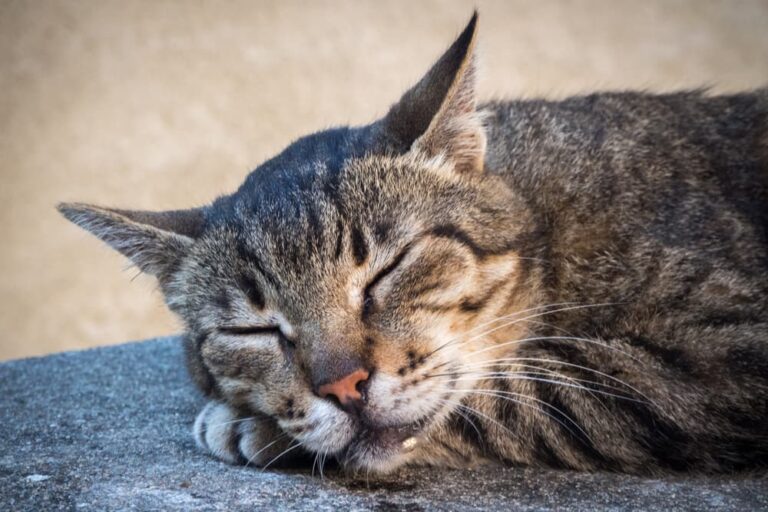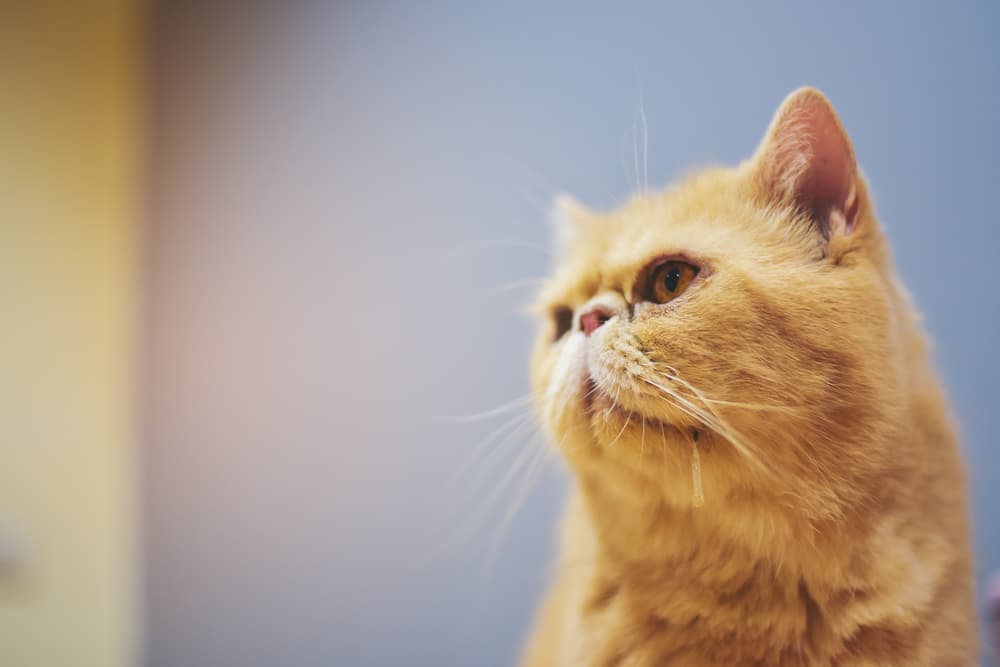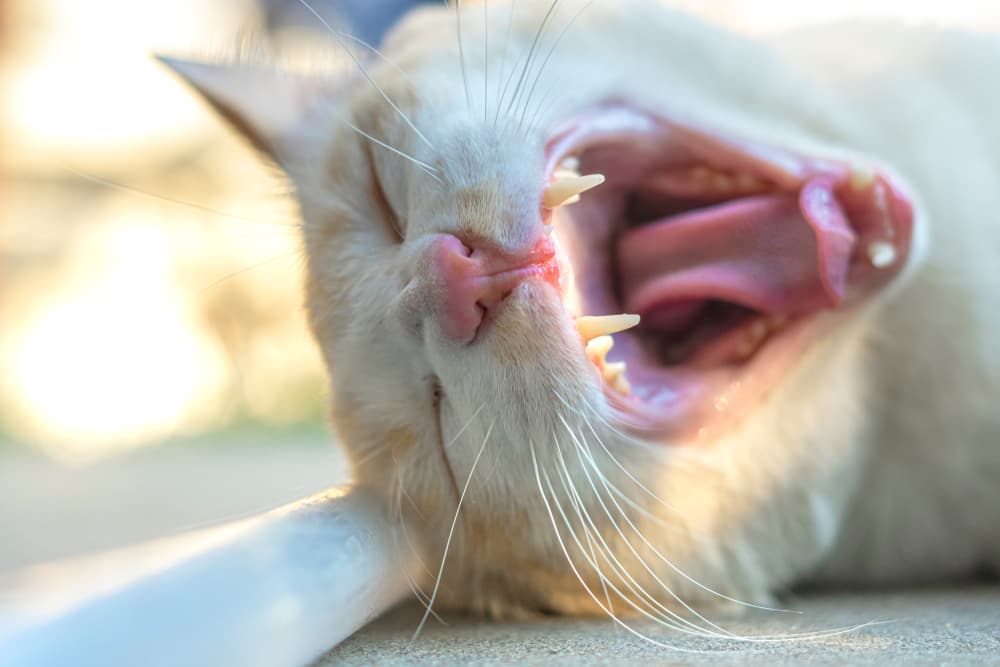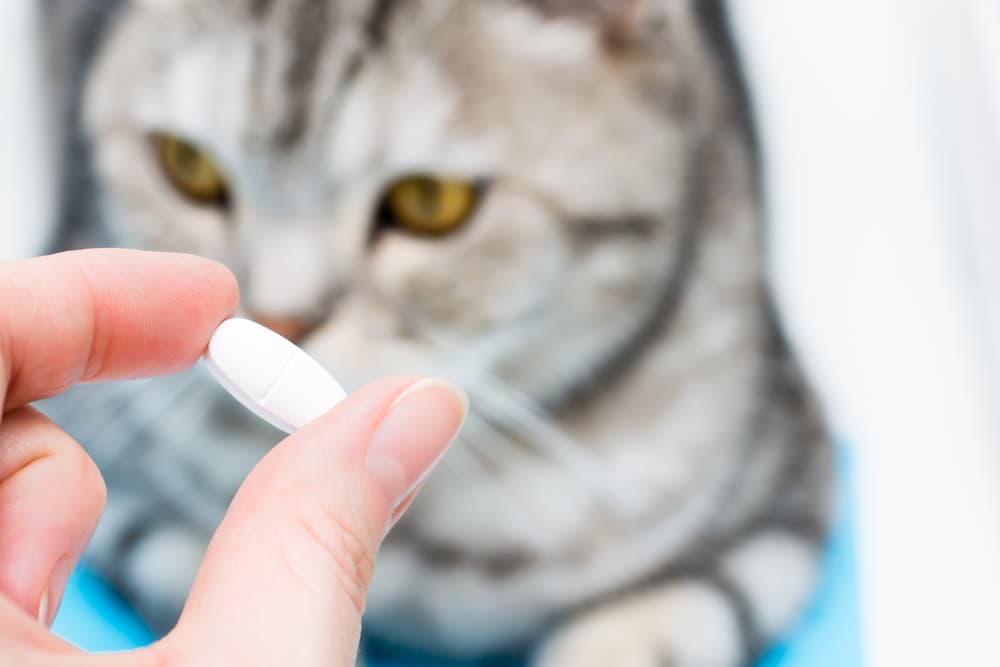Why Do Cats Drool? Common Causes, Explained.

Overview
- Cats drool for numerous reasons. Some of these reasons are harmless, but most are not.
- Drooling before dinnertime isn’t a worry, but there are some signs of excessive cat drooling to look for.
- If your cat is drooling a lot, your vet can determine the cause and develop a treatment plan.
- You may not be able to prevent drooling, but steps like brushing cat's teeth and dental cleaningscan help.
If there were a contest for drooling in pets, dogs would surely win. Some dog breeds, like the St. Bernard, are prolific droolers, leaving a messy trail of saliva wherever they go.
But what about cats? Are they part of the drool conversation?
They sure are! But usually not for a good reason. So why do cats drool? And what causes our feline friends to salivate? Let’s dig deeper into drooling in cats.
Do Cats Drool?

Cats do drool, but not as much as dogs. While some dog breeds are legendary for their drooling, there are no differences in drooling among cat breeds.
Drool is saliva, which is produced by the salivary glands. Saliva is normal and has a few essential functions, like lubricating food for easier travel down the esophagus. Saliva is considered to be drool when produced in large enough amounts to flow out of the mouth.
Some cats drool occasionally and are otherwise healthy. In most cases of cat drooling, though, there’s an underlying health problem that needs attention.
Why Do Cats Drool?

Cats drool for numerous reasons. Some of these reasons are harmless, but most are not. Let’s go through the benign reasons first.
Some cats drool when they’re super-relaxed. For example, you may have noticed that your cat drools a little when you pet them. There’s no conclusive reason why this happens. Perhaps it’s because they’re so relaxed that their jaw muscles slacken and the drool pours right out of their mouths, similar to when we doze off and wake up with a small pool of drool on the pillow.
Other cats drool when they hear the sound of a can of cat food being opened, and the smell of that tasty food reaches their noses.
But most of the time, if your cat is drooling excessively or often, it’s a sign of trouble. Cats drool more commonly when they’re unwell than when they’re feeling good.
Worrisome reasons for cats drooling are listed below:
Periodontal Disease

Periodontal disease is a disease of the teeth and teeth-supporting structures, like the gums. Cats with advanced periodontal disease have significant oral discomfort and cannot keep saliva from dripping out of the mouth.
Feline Odontoclastic Resorptive Disease (FORL)
FORL is a cat-specific dental disease that occurs when a cat’s gums start to reabsorb the teeth. It causes significant pain, and drooling is one of the first signs of the disease.
Oral Pain
There are lots of causes of oral pain, such as trauma, infection, and foreign bodies. This pain leads to drooling.
Toxins

If a cat eats something toxic, such as a poisonous flower or plant (e.g., poinsettia), they will start drooling in an attempt to rid the body of the toxin.
Nausea
A cat that has an upset tummy and feels nauseated often starts to drool.
Kidney Disease
Chronic kidney disease is a common disease in older cats. When the kidneys stop working well, toxins build up in the blood, causing a condition called ‘uremia’ (urine in the blood). Uremia can cause problems in the mouth, including painful ulcers that lead to foul-smelling drool.
Medications

Some medications, such as certain antibiotics, cause drooling in cats.
Nerve Damage
Nerve damage is uncommon in cats. However, if the cranial nerve that controls mouth movement is damaged, a cat can longer close its mouth correctly, leading to drooling.
Excessive Drooling in Cats: When to Worry

Drooling a little bit before dinnertime or while being petted is not a big concern in cats.
So, when should you start to worry about cat drooling? Here are signs to look out for that indicate that your cat’s drooling is a problem:
- Signs of systemic illness, such as lethargy, loss of appetite, and weight loss
- Obvious oral discomfort
- Difficulty eating or drinking
- Bad breath
- New, finicky eating behavior
- Foul-smelling or blood-tinged saliva
- Constant, excessive drooling
If you see any of these signs, take your cat to your veterinarian. Because cat drool often points to another health problem, you don’t want to delay getting your cat looked at.
Diagnosing the Cause of Cat Drooling

If your cat is drooling a lot, your veterinarian will do a thorough diagnostic workup to determine the cause.
First, your veterinarian will perform a physical exam and ask you questions about the drooling. Be prepared to answer questions like these:
- What does the drooling look like?
- When did you first notice your cat drooling?
- Has your cat had behavior changes as a result of the drooling?
The more information you can provide about your cat’s drooling, the better your veterinarian will be able to determine what’s going on.
Part of the physical exam will include an oral exam. Depending on your cat’s level of oral discomfort, your veterinarian may need to sedate your cat to take a closer look in the mouth. They will look for any oral abnormalities that could be causing the drooling.
Because drooling can sometimes result from systemic disease, your veterinarian will examine your cat’s entire body during the physical exam.
Depending on the physical exam findings, additional diagnostic testing may be needed. For example, bloodwork would reveal systemic disease, like kidney disease. X-rays of the mouth would reveal signs of oral trauma or dental disease.
Treating a Cat for Drooling

Once your veterinarian has finished evaluating your cat, they will develop a treatment plan that addresses the underlying health problem. Once that health problem has been treated or is successfully under control, the excessive drooling should resolve.
Can I Prevent Cat Drool?

You may not be able to stop or prevent your cat from drooling completely, but there are certain things that you can do to keep your cat’s mouth healthy. Try these tips to care for your cat’s oral health:
Brush your cat’s teeth. Regular toothbrushing (at least several times a week) helps keep the teeth and gums healthy. Effective dental treats help prevent the buildup of plaque and tartar on the teeth that can lead to periodontal disease.
Schedule dental cleanings. Annual veterinary dental cleanings, which are performed under anesthesia, give your cat’s mouth a deep clean and allows for early detection of dental disease.
Keep consistent veterinary visits. Wellness checkups allow your veterinarian to assess your cat’s overall health and detect systemic health problems early. Catching and treating these diseases early can keep serious illness and excessive drooling at bay.
Drooling in cats usually signals a serious health problem that requires veterinary care. If you notice troubling signs of drooling in your cat, schedule an appointment with your veterinarian.
With proper diagnosis and treatment, your cat’s drooling can be managed, and your cat—and their mouth—will feel much better.









